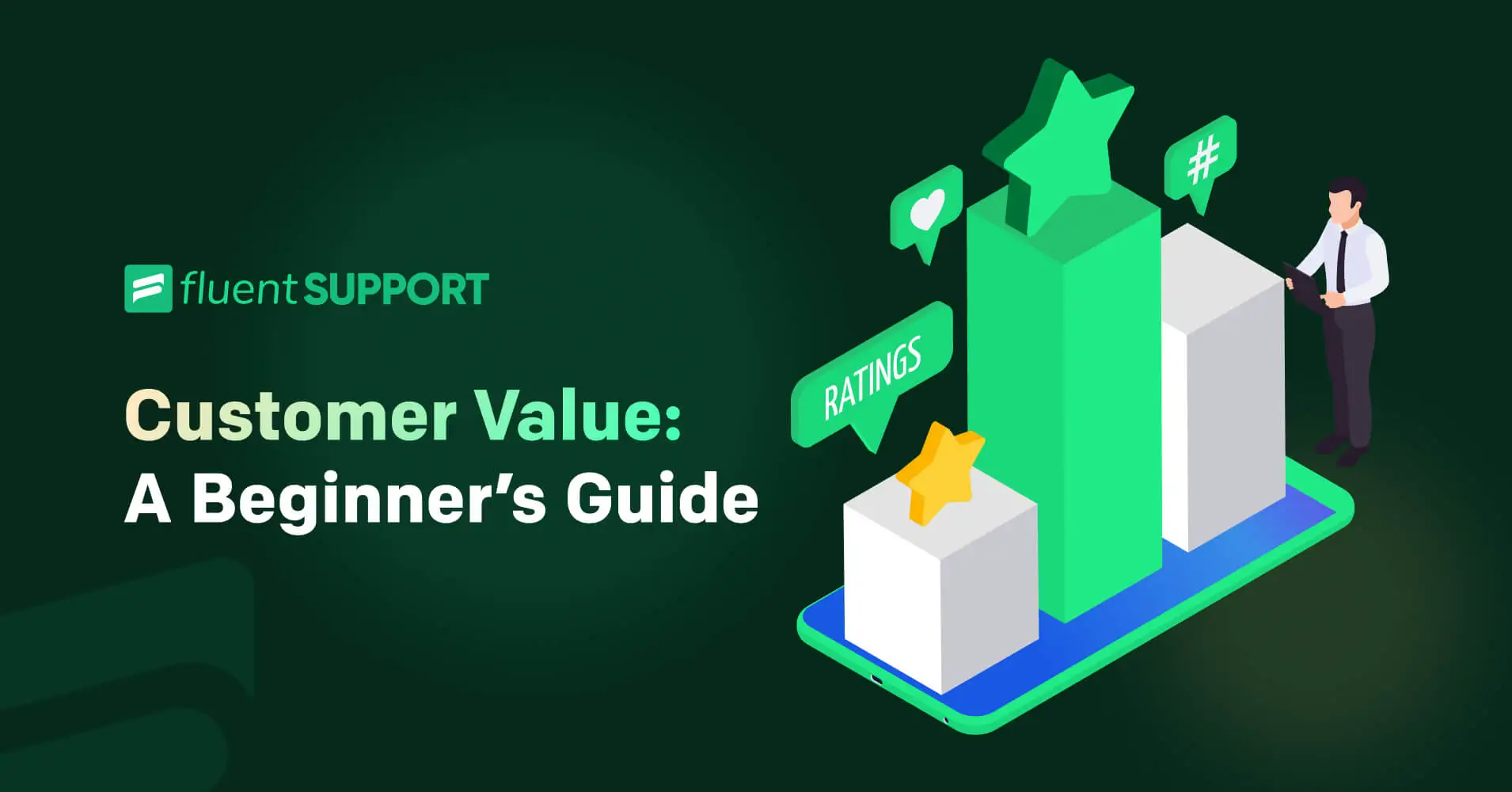
Understanding and delivering customer value is where your business truly starts. At the end of the day it’s what you provide that brings people to you. Anything else is just a side quest.
But what exactly is customer value, and how do businesses create it? For this article, we’ll explore the concept of customer value, its importance, and how you can create it. We’ll also delve into macro strategies for developing customer value and how the value of goods or services is determined.
Customer value definition
Customer value refers to the actual benefits a product or service brings compared to the cost required to obtain it. It’s essentially what customers believe they are getting in return for their money, time, or effort.
For example, imagine you’re in the market for a new smartphone. You might consider factors such as the phone’s features, performance, design, and price. If you believe that a particular smartphone offers the best combination of these factors relative to its cost, then you perceive it to have high value. Conversely, if the features don’t validate the price, you’ll consider it as low-value.
Importance of customer value
Now that we’ve got the basics out of the way. Understanding and developing customer value is crucial for every business. That’s kind of how you set yourself apart from the competition. Here are some core reasons to develop customer value,
Improved customer satisfaction and loyalty
When customers feel that they’re getting value from a product or service, they’re more likely to be loyal to the brand. More importantly, it helps people trust your brand to deliver exactly what they need. Not to mention it builds trust in your offer and in your brand.
Competitive advantage
As we’ve already said, businesses that consistently deliver superior value can successfully differentiate themselves from competitors while attracting customers. This competitive advantage can go a long way in making your business sustainable.
Revenue growth
Only satisfied and loyal customers are likely to make repeat purchases and recommend the brand to others. To drive revenue growth with upselling opportunities, having a solid customer value proposition is key.
Brand reputation
Positive perceptions of value are the capital of your business. It contributes to a strong brand reputation, enhancing credibility and trust among your customers.
Find, store and access customer feedbacks
all in one system.
What do customers value most?
Customers value different things depending on their needs, preferences, and circumstances. However, some common factors are worth talking about to ensure a general value.
Quality
Quality can mean many things depending on the product or service. But in general a product’s value needs to include its quality, whether it’s longevity, utility or simply how it feels to hold. Customers want products or services that meet or exceed their expectations in terms of performance, durability, and reliability. But they also care about all these characters coming together to provide a unique experience.
Price
While customers seek value for money, they’re also willing to pay more for products or services that offer unique benefits or superior quality. Now, different products always provide a unique benefit known as the USP. Your USP should ideally be enough to justify the price in and of itself.
Convenience
Customers appreciate products and services that make their lives easier and more efficient. Here’s why convenience matters:
They value seamless and hassle-free purchasing experiences, whether it’s through online channels, mobile apps, or brick-and-mortar stores. Streamlined checkout processes, flexible payment options, and fast delivery contribute to convenience.
Products and services that are readily available when and where customers need them are highly valued. Anything that saves customers time or effort is also considered convenient. This could include features like one-click ordering, subscription services that automate replenishment, or intuitive user interfaces that minimize the need for learning or assistance.
Customer service
Exceptional customer service is crucial for standing out in the market. Here’s why it’s integral to the value proposition: responsiveness, helpfulness, personalization, and empathy.
Customers value prompt responses to inquiries, showing that their time is respected and their satisfaction is prioritized. Going above and beyond to assist customers leaves a lasting impression, whether it involves providing personalized recommendations or troubleshooting technical issues.
Tailoring the customer experience to individual preferences enhances perceived value, such as addressing customers by name and offering personalized product recommendations.
The Four types of customer value
When it comes to understanding what customers really want, it’s all about value. But value isn’t just about the price tag. It’s about what you get out of a product or service, beyond just the basics. So, let’s break it down into four main types of customer value that businesses should know about. Customer value can be categorized into four types,
Functional value
This is all about how well a product or service meets your needs. Think of it as the practical benefits like a phone’s ability to make calls and access the internet.
Emotional value
This is about the good vibes you get from using something. It’s like feeling excited or satisfied when you use a cool gadget or wear a fancy watch.
Social value
This is about the benefits you get from connecting with others or being part of a certain brand or product. Social media is a prime example, where you can chat with customers and share stuff.
Psychological value
This is the deeper stuff, like how a product or service makes you feel about yourself. For example, using eco-friendly products might make you feel good about helping the environment.
Understanding these different types of value allows businesses to tailor their offerings and messaging to better resonate with their target audience.
Customer value journey (CVJ)
The Customer Value Journey (CVJ) is a strategic framework that outlines the stages through which customers progress in their relationship with a brand. It includes stages such as awareness, engagement, conversion, ascension, and advocacy. By guiding customers through this journey and delivering value at each stage, businesses can foster long-term relationships and loyalty.
The customer value journey is like a roadmap that outlines the stages of the customer’s relationship with the business, from awareness to advocacy. Understanding this journey is essential for businesses to effectively attract, engage, and retain customers.
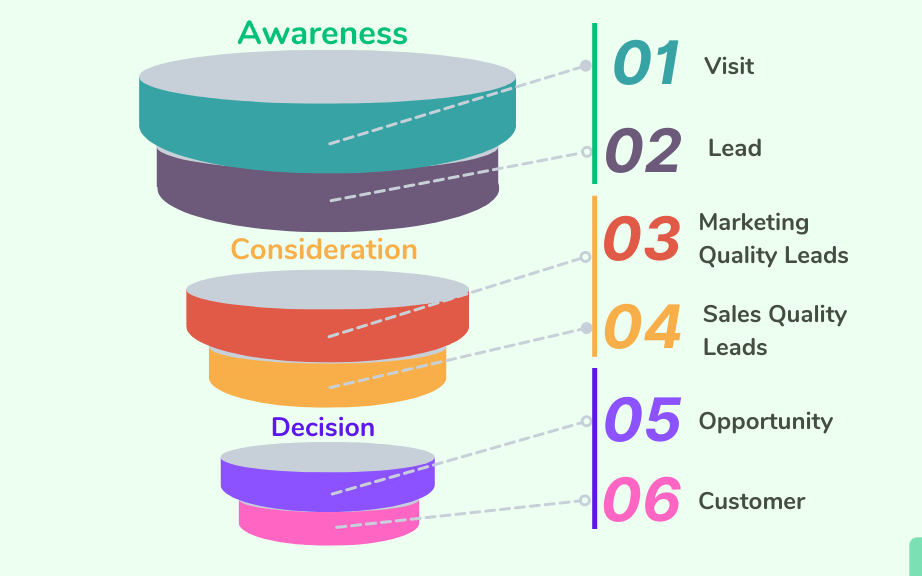
Awareness
Customers first become aware of the brand or product through various channels such as advertising, social media, word-of-mouth, or online search.
Consideration
Customers start evaluating their options, comparing different products or services, reading reviews, and seeking recommendations.
Purchase
Customers make the decision to purchase the product or service, either online or in-store.
Retention
The goal is to retain customers by providing exceptional customer service, delivering on promises, and continuously engaging with them.
Advocacy
Satisfied customers may become advocates for the brand, recommending it to others and sharing their positive experiences.
How is customer value created?
From product innovation to exceptional customer service, every aspect of the customer experience plays a crucial role in the creation of value. Let’s uncover the secrets behind building meaningful connections and delivering value that truly matters to customers. Here’s howCustomer value is created in a product:
Innovation
Developing or improving products or services that address unmet needs or provide unique solutions can create value for customers.
Quality
Maintaining high standards of quality in products, services, and customer experiences is essential for delivering value.
Customization
Offering customization options allows customers to tailor products or services to their specific preferences, increasing perceived value.
Value-based pricing
Setting prices based on the perceived value to the customer rather than solely on costs or competition can enhance value perceptions.
We’ll explore several macro strategies to enhance customer value here as well.
Building a customer-centric culture
Creating a customer-centric culture is crucial for businesses. It means everyone, from top management to frontline workers, focuses on understanding and meeting customer needs. Prioritize customer satisfaction, retention, and loyalty over solely chasing sales.
Market segmentation and targeting
Segmenting the market helps identify different customer groups with similar needs. By understanding each group’s unique requirements, businesses can tailor products and marketing efforts to better meet those needs.
Product and service innovation
Continuous innovation is vital for staying competitive. Gathering feedback from customers helps identify areas for improvement and new opportunities. Invest in research and development to develop new products or enhance existing ones.
Personalization and customization
Personalization involves tailoring products, services, and marketing messages to individual customers based on their preferences. Leverage customer data to create personalized experiences across various touchpoints.
Brand reputation and trust
Building a strong brand reputation based on trust and reliability is essential. Consistently deliver on promises, engage with customers, and demonstrate transparency in all communications.
Omni-channel experience
Provide a seamless experience across all channels, including physical stores, websites, and social media. Use technology to track customer interactions and personalize the experience accordingly foer an omni-channel presence.
Post-purchase support and engagement
Post-purchase support and engagement are crucial for ensuring customer success and satisfaction. Implement loyalty programs and solicit feedback to demonstrate a commitment to continuous improvement.
Community building and advocacy
Foster a sense of community among customers and encourage them to become brand advocates by sharing their positive experiences.
Ethical and social responsibility
Highlight your commitment to ethical business practices and social responsibility initiatives that align with customer values. Communicate transparently about the company’s values and contributions to society.
How is the value of a good or service determined?
Determining the value of a good or service is a multi-faceted process influenced by various factors that shape customers’ perceptions and decisions. One crucial aspect is the perceived benefits that customers expect to derive from the product or service in relation to its cost.
Customers assess the potential advantages, whether they are functional, emotional, social, or psychological, and weigh them against the price tag or any other sacrifices required. The value of products depends on the following,
Perceived benefits
Customers evaluate the benefits or advantages they expect to receive from a product or service relative to its cost.
Cost or sacrifice
Customers consider the monetary price, time, effort, or other sacrifices required to obtain and use the product or service.
Comparison to alternatives
Customers compare the value proposition of a product or service to alternative options available in the market.
Subjective factors
Individual preferences, experiences, and perceptions influence how customers assess the value of a good or service.
Wrapping up
Customer value is a fundamental concept in business that encompasses the perceived benefits customers receive from a product or service. By understanding what customers value most, businesses can develop strategies to create and deliver value effectively.
From macro strategies for developing customer value to understanding the factors that determine the value of goods or services, prioritizing customer value is essential for driving satisfaction, loyalty, and growth.
Start off with a powerful ticketing system that delivers smooth collaboration right out of the box.






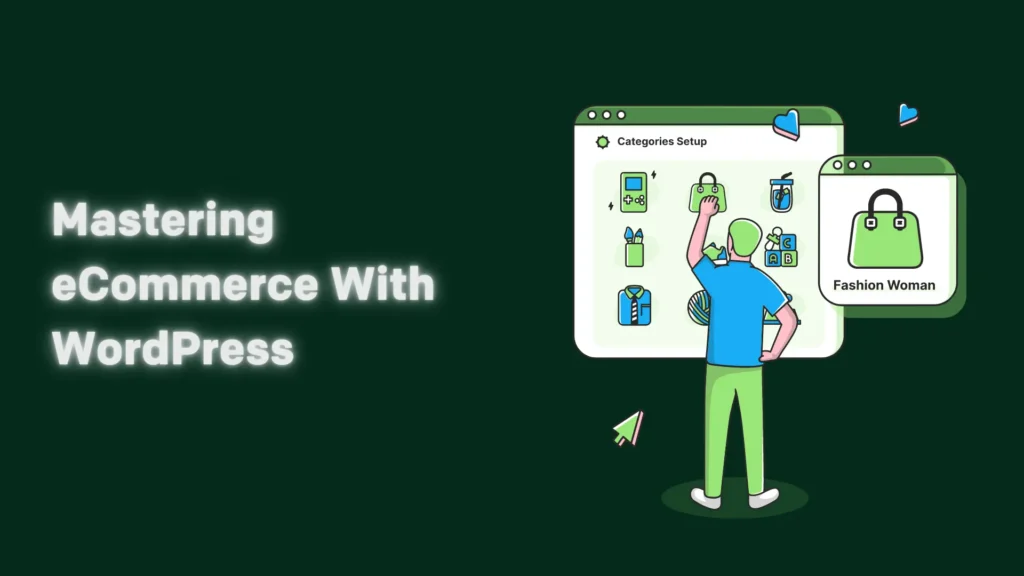


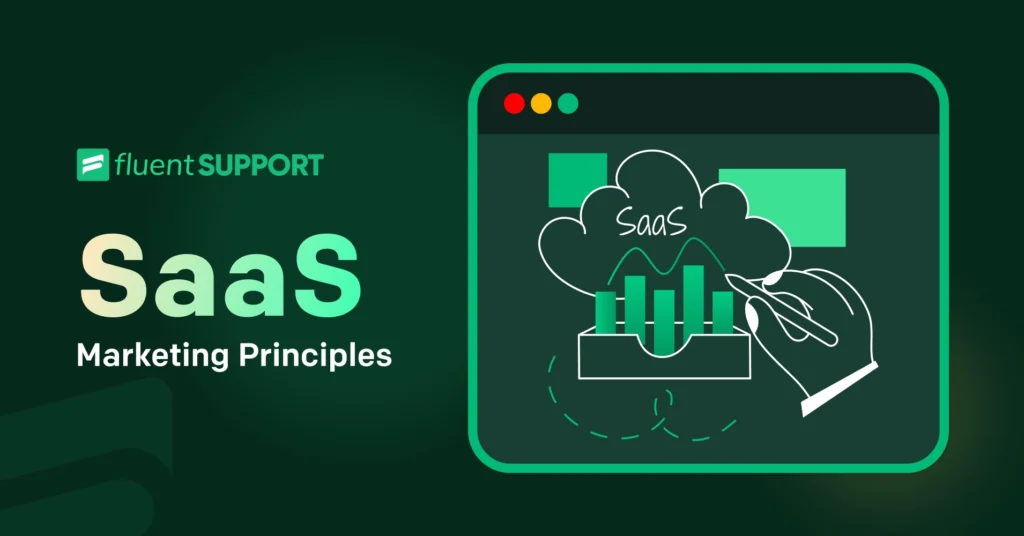

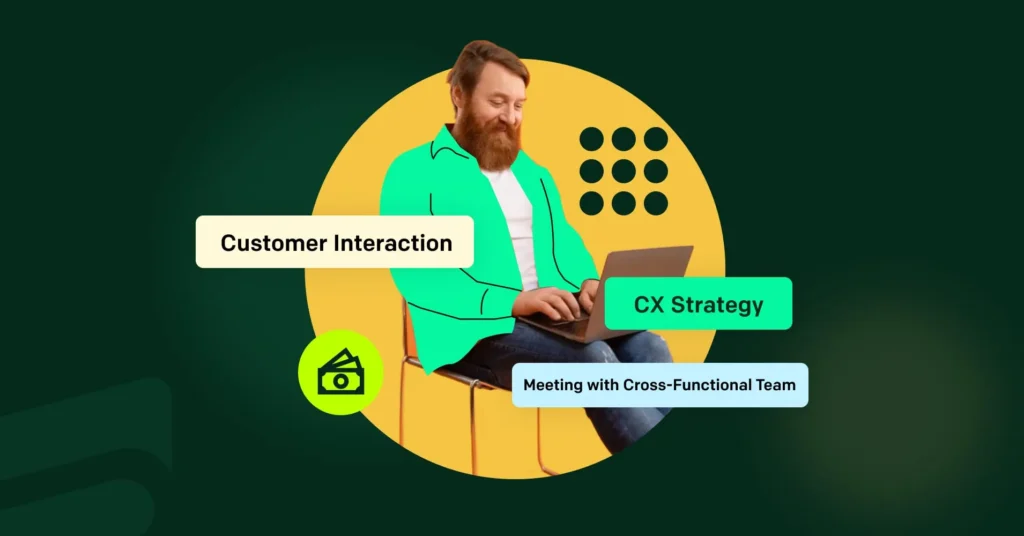
Leave a Reply